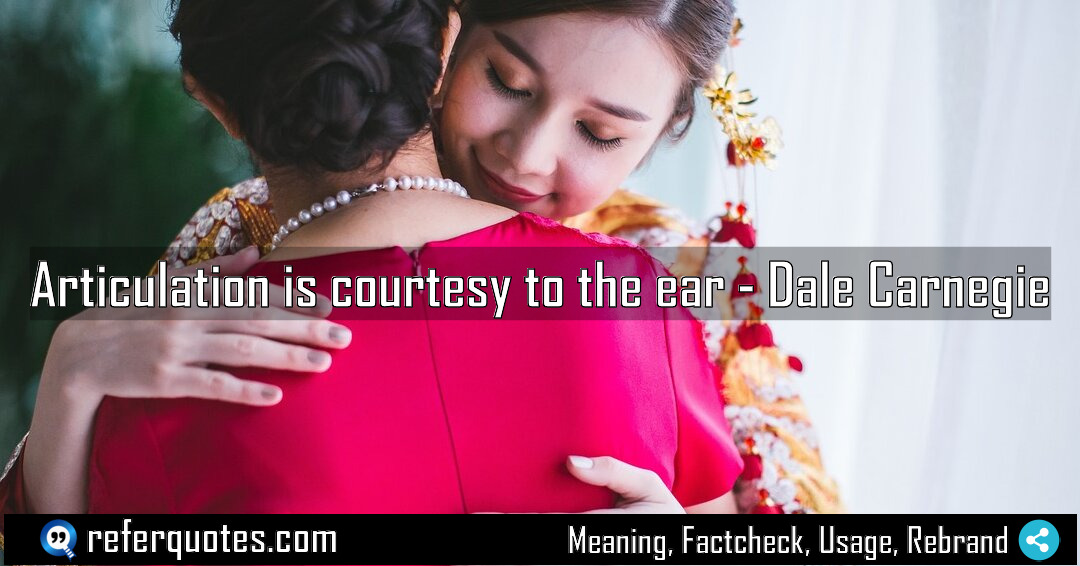You know, “Articulation is courtesy to the ear” is one of those lines that sticks with you. It perfectly captures why clear speaking isn’t just a skill—it’s a form of respect for your audience.
Share Image Quote:Table of Contents
Meaning
At its heart, this quote means that speaking clearly is a simple act of politeness. It’s about making it easy for people to listen to you.
Explanation
Let me tell you, this is one of the most practical pieces of communication advice I’ve ever come across. It reframes the whole goal. You’re not just trying to avoid mumbling or sound “professional.” You’re actively being considerate. You’re removing the friction, the “wait, what did he say?” moments that force your listener to work harder. It’s the vocal equivalent of holding a door open for someone. When you articulate, you’re saying, “I value your time and attention, so I’m going to make this as easy as possible for you to digest.” It’s a game-changer.
Quote Summary
| Context | Attributes |
|---|---|
| Original Language | English (3668) |
| Category | Education (260) |
| Topics | clarity (95) |
| Literary Style | pithy (25) |
| Emotion / Mood | determined (116) |
| Overall Quote Score | 55 (10) |
Origin & Factcheck
This gem comes straight from the classic public speaking manual, The Art of Public Speaking, first published in 1915. It’s a co-authorship between the legendary Dale Carnegie and Joseph Berg Esenwein. Sometimes people attribute it solely to Carnegie, but it was very much a collaborative effort from the start.
Attribution Summary
| Context | Attributes |
|---|---|
| Author | Dale Carnegie (408) |
| Source Type | Book (4032) |
| Source/Book Name | The Art of Public Speaking (25) |
| Origin Timeperiod | Modern (530) |
| Original Language | English (3668) |
| Authenticity | Verified (4032) |
Author Bio
Dale Carnegie(1888), an American writer received worldwide recognition for his influential books on relationship, leadership, and public speaking. His books and courses focus on human relations, and self confidence as the foundation for success. Among his timeless classics, the Dale Carnegie book list includes How to Win Friends and Influence People is the most influential which inspires millions even today for professional growth.
Official Website |Facebook | X | Instagram | YouTube |
Where is this quotation located?
| Quotation | Articulation is courtesy to the ear |
| Book Details | Publication Year/Date: 1915 (first edition); ISBN/Unique Identifier: 9781420933431 (common Digireads reprint); Last edition. Number of pages: common reprints ~300–480 pages (varies by printing) |
| Where is it? | Part IV Articulation and Pronunciation, Unverified – Edition 1915, page range ~210–224 |
